Magic: The Gathering went through a series of changes and polemic or controversial moments in 2022. In fact, the feeling I have is that so much happened this year regarding the game that we are a bit overwhelmed, and it was the first year that I witnessed people wanting to take a break from Magic as there was "too much stuff happening".
This was quite a year for the game, and just as we had a series of burnouts, we also had some good news throughout 2022. In this article, we'll present five rights and five wrongs made by Wizards of the Coast/Hasbro regarding Magic:The Gathering.
This selection of events was made based on the repercussion they had, their short and long-term impact on the company and the game, besides what they signal for the future of the brand.
Five Rights for Magic: The Gathering in 2022
1 - The Pauper Format Panel

If I had to choose the best event of the year, it would be the creation of the Pauper Format Panel.
Pauper has always been a format that had to fight for its place regarding questions such as recognition and ban list management. For years, players had to spend months facing far from healthy metas, and its boiling point was when almost three months had to go by before Chatterstorm and Sojourner's Companion got banned, which made it a three deck format at the time (Storm, Affinity and Blue-Based).
So, in January 10th 2022, Wizards announced the creation of a specialized committee, Pauper Format Panel, which includes six important and influential names of the scene, besides Gavin Verhey, senior designer at Magic: The Gathering. The committee's objective is to manage and evaluate Pauper's health and give Wizards of the Coast recommendations regarding which changes to the format need to be made.
Ever since this creation, Pauper went through a few series of changes throughout the year, including the surgical ban of Prophetic Prism and Bonder's Ornament in the committee's first wave of interventions, followed by the Galvanic Relay and Disciple of the Vault's bans and, of course, Initiative cards bans just a few weeks after they started to wreak havoc in this format.
If there is something that Wizards could learn with PFP, is that having a group of dedicated and specialized people in certain competitive formats assisting the company regarding which problems are happening helps create more diverse and healthy environments to play in, and this initiative could be amplified to other metas in which the company doesn't act as fast when addressing their problems, such as Legacy.
2 - Explorer Format for Magic Arena

When Historic was announced, the idea that it would be the "eternal format" for Magic Arena was quite visible. However, as the years passed, it went through a series of changes and specific card additions through Anthology products, and it got really confusing when, suddenly, the digital platform got the JumpStart cards and announced that all of them would be valid in Historic.
This event started out the joke that no one knows exactly what is valid or not in Historic, and the situation only got worse when they added Mystical Archives and later on the exclusive digital cards, besides some many pieces from the Modern Horizons sets. Historic no longer was "the format to play when your cards rotate out", it was something entirely different and which many players started not to like.
To answer the demand from players who wished a true eternal format, loyal to the tabletop, Wizards announced April 21st the Explorer format, whose objective is to eventually become Pioneer as new cards are added to the digital platform, so, they would use the same pool of cards and the same banlist.
We can say that, besides indirectly helping popularize Pioneer, Explorer helped speed up the format's nice management that would follow in the form of precise bans, such as Winota, Joiner of Forces and Expressive Iteration. Besides that, Explorer gave players not only a refuge to play with their rotated cards without having to deal with certain bizarre mechanics that are present in Historic, as it also gave birth to a very singular meta that takes turns with Pioneer and helped popularize, for instance, midrange Rakdos.
Another symptom that sprung out from Explorer being created is that we are getting more reprints of cards that are necessary in Pioneer for this format. For instance, painlands came out in Dominaria United and The Brothers' War, which also brought Monastery Swiftspear, and I believe we can expect more important pieces from this format getting into the digital platform through Standard's sets instead of just through Anthologies bundles.
3 - The Pro Tour Comeback
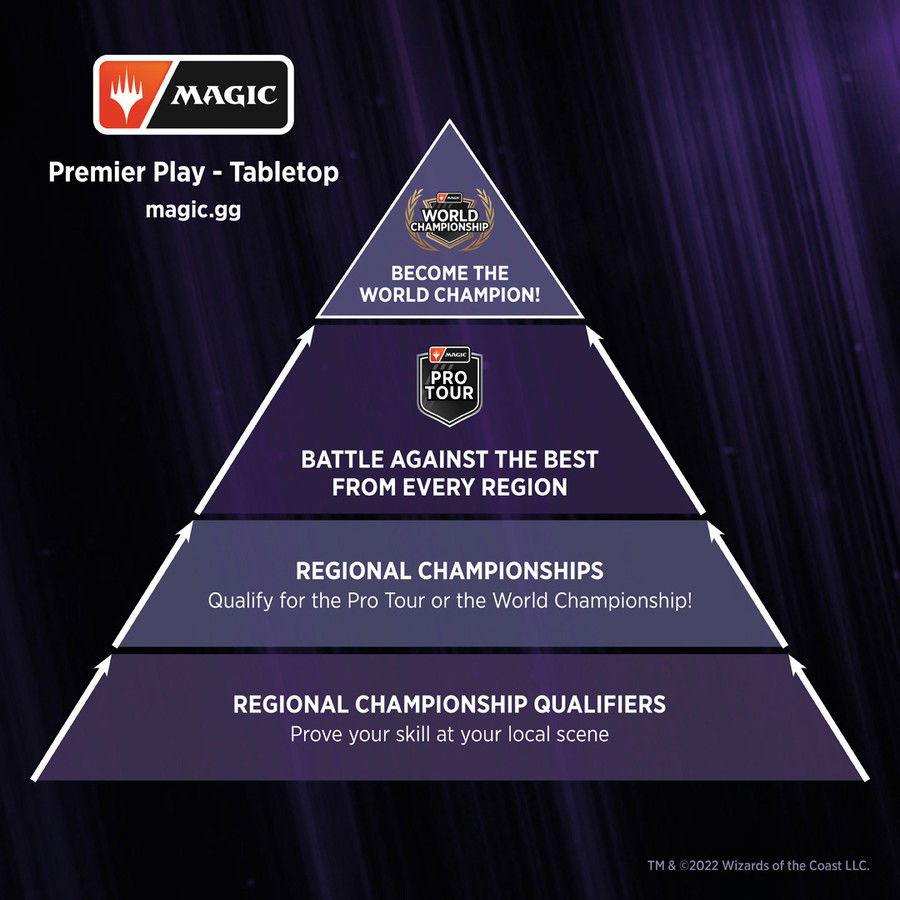
A more appropriate title would be "The tabletop's return as part of the core of what composes the Magic: The Gathering's competitive and professional scene", but that wouldn't be only too long, but also we can, in fact, sum up this "Paper Magic" return to the post-pandemic world's spotlight to the Pro Tour return.
With U$500.000 prizes for each Pro Tour, the new Premier Play system for the game starts with the classifiers for the Regional Championships, whose details were in the hands of known stores in their respective regions, and that could be played in any local store that was part of the local organization's program.
Of course that, by delegating a part of the program and leaving it in the hands of different organizers, competitive Magic's new route became target of some controversy during the Qualifier season, besides also having some faults in their structures which naturally made it hard for some communities and regions to participate in such a high scale tournament such as Pro Tour.
However, the return of a well organized competitive structure of easy understanding was something that Magic lost when Wizards decided to bet their money on migrating to the eSports world - which, let's admit, was a failure because the company wanted to compete in this universe without presenting a structure worthy of the eSport title in its digital platform - and returning to the basics helps any player who wants to go beyond casual play to understand the play-by-play that they need to follow if one day they wish to have their names eternalized in the game's history.
The first Pro Tour after this renewal will happen February 2023. In it, we will have an idea regarding which good and bad apples will be available for harvest after years of investing in failed changes that only made it harder to understand what is competing and seeing high level face-to-face games of Magic: The Gathering.
4 - Kamigawa: Neon Dynasty
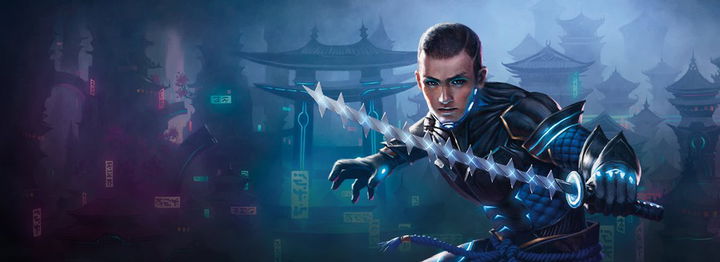
Yes, Magic had way too many releases in 2022, and we will address this issue down below, but how about we go back to the moment when the game still looked promising? Kamigawa: Neon Dynasty got virtually everything right in what it tried to do, being seen as the best Magic set of the year!
Each small aspect of this set was very well-done: its eastern cyberpunk thematic was perfect, and it reflects well the passage of time that happened in the Kamigawa plane; the set didn't leave out iconic names and clans from the original block such as the Umezawa or the Hidetsugu; the Channel Lands cycle was one of the most elegant ones in the history of the game; famous mechanics such as Ninjutsu returned; most of its thematics worked really well and established their own strategies in competitive formats.
Besides that, Commander decks were exceptional, the alternative artworks and mainly the basic lands were gorgeous and, finally, the lore had finally taken the first wide step towards the return of the Phyrexia's arc. And if we look outside the context of the card game itself, even the promotional props for this edition, such as the backpack that came with other exclusive items, were very well-done.
Its launch rekindled in many players the passion for playing Magic at the beginning of 2022, and Neon Dynasty also left its permanent mark on Magic's competitive scene with cards such as Fable of the Mirror-Breaker, The Wandering Emperor and Greasefang, Okiba Boss. And if we look at the impact beyond the game, this set is a great example on how to promote a new product, and it would be wonderful if Wizards took advantage of some of these important lessons in the future.
5- "Pride Across the Multiverse" Secret Lair
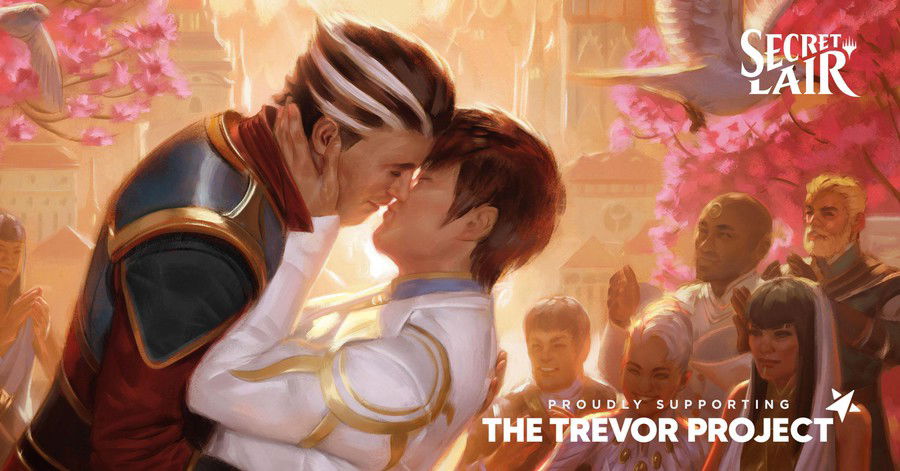
The Secret Lair series is the target of controversies ever since its first bundle at the end of 2019. Wizards' idea of directly inserting promotional cards in players' hands without going through a store or a distributor was poorly received, but the collectible aspect of Secret Lairs and their limited printing makes them a desired item, mainly by collectors and those who see Magic as an investment.
Today, bundles known as Superdrops come out a bit after every main Magic release and have become such a common practice for Wizards that most people started to simply ignore them or consider them just one more of Hasbro's many shots at selling more products from their famous "golden goose". But we need to give due credit when the company takes initiative for the greater good of a cause and puts it in evidence, and the initiative behind Pride Across the Multiverse was an excellent idea.
Magic is a game that has a very diverse audience, but its community in some regions is pretty toxic towards marginalized groups. Having the company give a nod to these groups through a promotional product and uniting it to a tangible action for this community, such as donating half of the revenue from the sales to The Trevor Project, encourages these groups to want and have more space and voice inside and out of their local scenes.
Magic: The Gathering has the potential of being the catalyst through which these marginalized groups feel more comfortable to meet, be themselves, and find somewhere they can feel loved and accepted, and I hope Wizards of the Coast can recognize this type of embracing that it can offer to such an important community inside and out of the game.
Besides that, representation matters a lot, so I hope this company brings us more Ral Zareks and Tomiks, more Huatlis and Saheelis, more Aleshas, more Niko Aris, more bisexual characters, besides also figures which other groups can identify with, such as neurodivergents such as Narset, Parter of Veils.
Five Wrongs for Magic: The Gathering
1 - Pride Across the Multiverse being blocked in Latin America

Unfortunately, the beauty of Pride Across the Multiverse ended at the moment Wizards confirmed that content related to the product would be blocked in countries and regions where there are legal complications regarding LGBTQIA+ content. That means, it would be blocked in countries that criminalize homosexuality and, for some reason that was never explained, this Secret Lair was blocked from a good part of Latin America.
The company never addressed this issue, or fixed it, causing a gigantic wave of negative repercussion during a couple of weeks, since in countries such as Brazil, there aren't any laws that prohibit the publishing and sharing of LGBTQIA+ content. On the contrary, this country counts with the biggest Pride parade organization in the whole world, in São Paulo.
After seven months passed since the announcement of this special edition, there still aren't any signs that Wizards of the Coast will correct this mistake and allow its Latin-American costumers to, through official ways, get the cards from one of the Secret Lair's series most important products, therefore disappointing a community that won't be able to feel represented and from which some event organizers which focus on these groups even felt discouraged to keep doing their work of uniting the community when the company itself doesn't seem to care enough about them.
2 - Magic's 30th Anniversary Edition
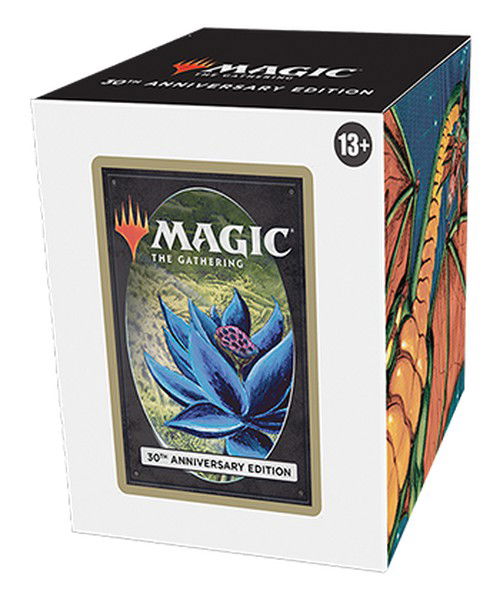
A thousand dollars for a box with four Beta booster packs, but all cards in it will be invalid for tourney play. Therefore, these boosters are just a commemorative product, with no practical purposes. This was the idea that Wizards had to celebrate Magic:The Gathering's thirty years, and the community hated it.
We can say this was the worst Magic product ever released: it is unnecessary, very expensive, is aimed exclusively for collectors and its only practical use is buying it and leaving it in your shelf until its price skyrockets due to its limited printing. That is, it has nothing that symbolizes a card game's thirtieth anniversary celebration.
By the way, this edition also gave light to the debates regarding if the company, by printing cards that are technically proxies, would be allowing the use of printed cards in non-sanctioned events such as Commander tables, which is an excellent repercussion for such a bad and poorly executed idea.
3 - Acorn Symbols
Un-Sets exist in the game ever since Unglued came out in 1998. The idea behind these editions evolved throughout the years, and they went from slightly infamous and offensive jokes in Unglued and Unhinged to the use of a design space that doesn't fit the game's patterns with Unstable, such as needing to lay down your head on the table or balancing a pile of cards on top of some part of your body.
The purpose of Un-Sets is creating a fun and unique game experience in a draft environment with cards that could never be valid in sanctioned tourneys, and to justify their legality, silver borders (just like the World Championship Decks' golden borders) have always been the more intuitive method of presenting these mechanics.
However, as the frequency with which these editions started to come out increased, it is very likely that a new problem has arisen: as they are invalid in tournaments, Un-Sets count with little to no value for most players, and it becomes commercially inviable and not all that attractive for stores to get them. The way they found of addressing this problem was including tournament-valid cards in the sets, so they could make them more interesting to everyone involved.

There is no official story on this, but I suppose including tournament-valid cards (with a black border) and invalid cards (with a silver border) in the same printing sheet is too troublesome, expensive or even impossible to execute. So, Wizards decided to change the method of identifying cards coming from an Un-Set, and they created the Acorn Symbol, in which if a card has in its inferior corner a holographic Acorn symbol, it can't be used in tournaments.
That means, instead of checking borders, now players need to check if there is a holographic symbol in the inferior corner of cards, breaking a tradition of almost 25 years and that, in practice, can bring problematic situations, as cards that should have the Acorn Symbol have come out in boosters without it, and vice-versa, which will make things even harder in the future when new players want to check if they can use a certain spell coming out of an Unfinity booster or not.
4 - Exclusive Generic Cards in Universes Beyond Sets
Though a parcel of the community doesn't like it, the Universes Beyond series is a very interesting idea that came to stay. The concept of adding characters and events from other franchises' mainstream cultures ias Magic cards allows the game to expand its scope of potential players, clients and collectors. Besides that, seeing iconic figures such as Ryu and Ken from the Street Fighter franchise in cards with mechanics focused on their personalities is much more interesting than just seeing an alter with their artwork.
A problem that came around when the Walking Dead set came out was that reprinting these cards was impossible because they belonged to a world that isn't inherent to Magic, and the company solved this problem by creating alternative versions of those cards that represent the same creature or magic, but with artwork and names belonging to the game's multiverse.

Warhammer 40,000 had a different approach from previous Universes Beyond sets: instead of new cards being released in Secret Lairs or them being just reprints of already existing cards of the game, such as Duress with League of Legends and Arcane's Jinx artwork, Commander decks brought a batch of exclusive cards with creatures, types and names that don't exist in Magic's universe, such as Astartes and Tyranids.
That means, where and how exactly will Wizards be able to reprint these creatures? The company can even do functional reprints of these abilities with other types of creatures, but will that mean Commander decks will be able to use both? Will this mean a Legacy list would be able to have up to eight copies of Mawloc if they so wish?
In Warhammer's case, this problem can be mitigated with functional reprints because there is no requirement of always having two exact copies for your deck to work, but what if the same thing happens with Lord of the Rings: Tales of Middle-Earth, which will be released in 2023 as a Modern-valid booster set? Can we see a Hobbit be a staple in multiple formats, knowing that we won't be able to reprint it outside that universe? Will there be any restrictions regarding copyrights in case a card is called "You Shall Not Pass!" and Wizards decides relaunching it in another set in 2028? If Gandalf comes out as a Planeswalker, can we give him the same treatment that Eleven from Stranger Things got?
Adding pieces inherent to worlds Universes Beyond seeks to explore is a great way of creating an immersive experience for fans of both of these franchises, but it also creates a long-term problem in which, if a card from that universe stands out too much in competitive scenes, its reprint becomes unlikely or even impossible due to matters of our own universe itself, such as the copyright and patent retention regarding certain names.
5 - Product Burnout
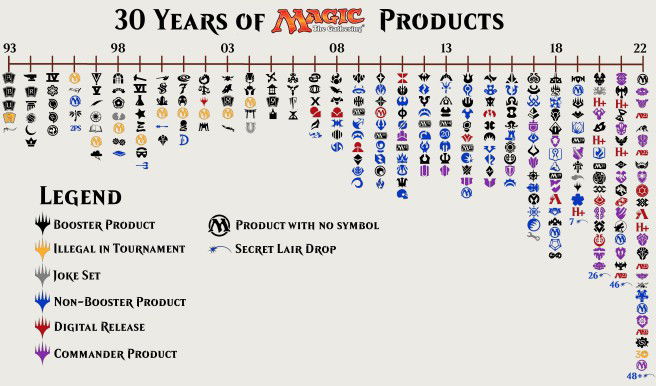
Whether you're a player, content creator, collector or just someone who keeps up with the game, it is likely that at some point you thought that in 2022 Wizards released too many sets and products.
To quote my own article about this matter, Magic had in this year four standard sets (all with Collector Boosters, Set Boosters, Draft Boosters, Commander Decks, and The Brothers' War also had Jumpstart Boosters), one Un-Set, four supplementing sets, three exclusive products for Commander (two with a total of five decks each), eight supplementing products for Alchemy/Historic in Magic Arena, two batches of Challenger Decks with four distinct decks in each, one casual release (Game Night), one special anniversary product and more than 50 Secret Lairs.
If that wasn't enough, there were so many spoiler seasons in 2022 that they started to bump into each other, and what seemed to be a consequence of the fact that Warhammer and Unfinity had delays in their prints ended up repeating itself in December, when Dominaria Remastered, predicted to launch January 13th, had all of its cards completely revealed in 24 hours and, in that same week, we already had the special broadcast talking about Phyrexia: All Will Be One, that comes out February 10th.
The burnout subject became so controversial that even a Bank of America report pointed out that Wizards was printing way too many cards and that was harming Magic's long-term health. The company answered by doing a "fireside chat" in which, to sum up, they stated that they are not releasing too much because each product has their own distinct segment of buyers in mind.
However, it is a fact that both players and content creators are tired of Magic because the company responsible for the franchise has adopted the perpetual hype methodology, and just as it appears to be happening with Marvel's cinematographic universe, there will be a moment in which people will get tired of keeping up with everything and will lose interest in the game.
Conclusion
This is all for today.
It was a very active year for Magic and its community, and many other wrongs and rights happened throughout these twelve months. In case you remember anything else that you feel like deserves more attention, you're welcome to leave it in the comment section.
Thanks for reading!

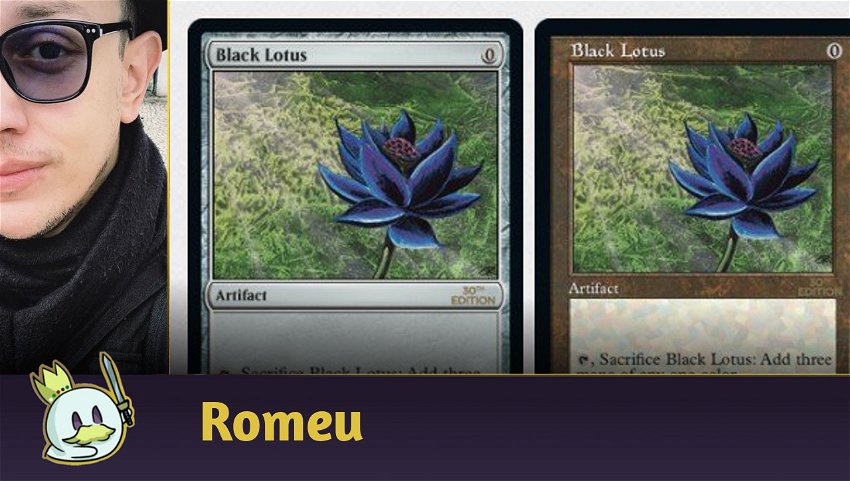






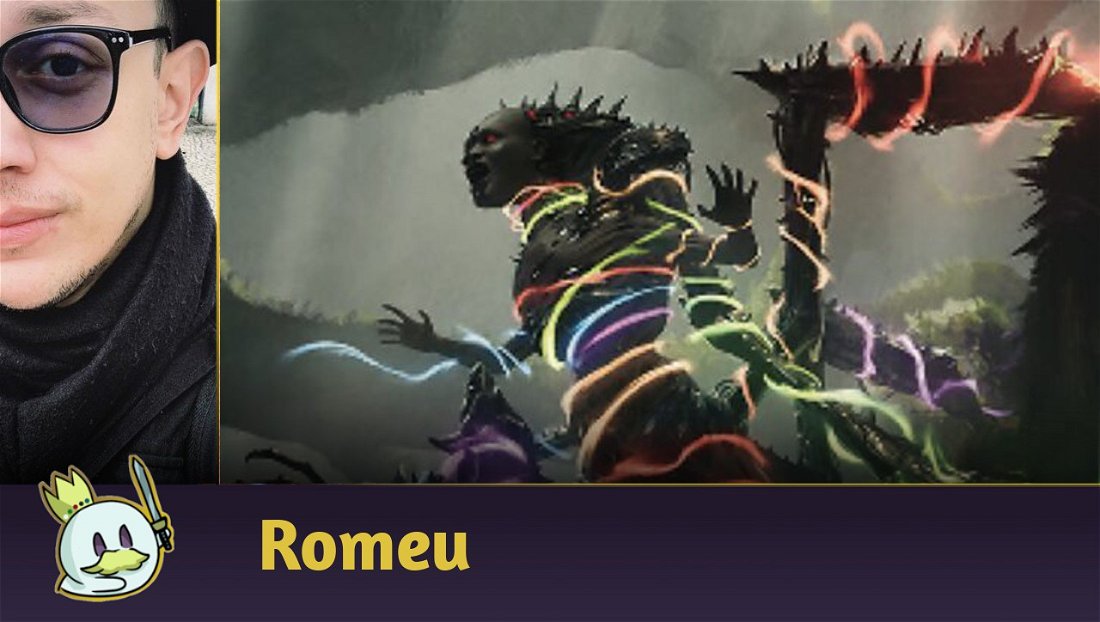
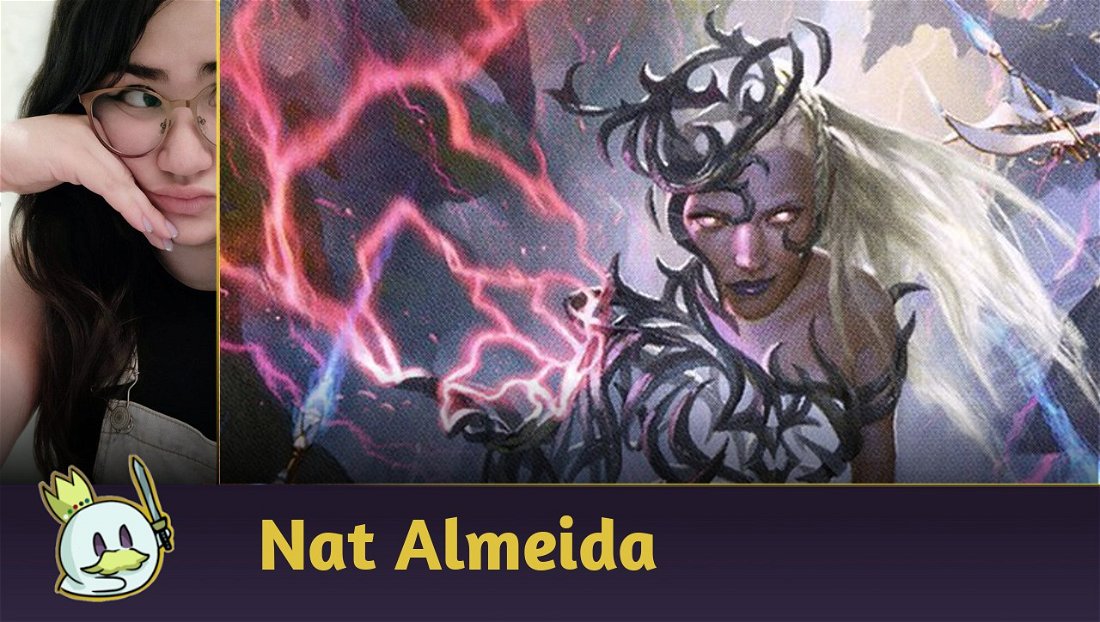



— Comments 0
, Reactions 1
Be the first to comment